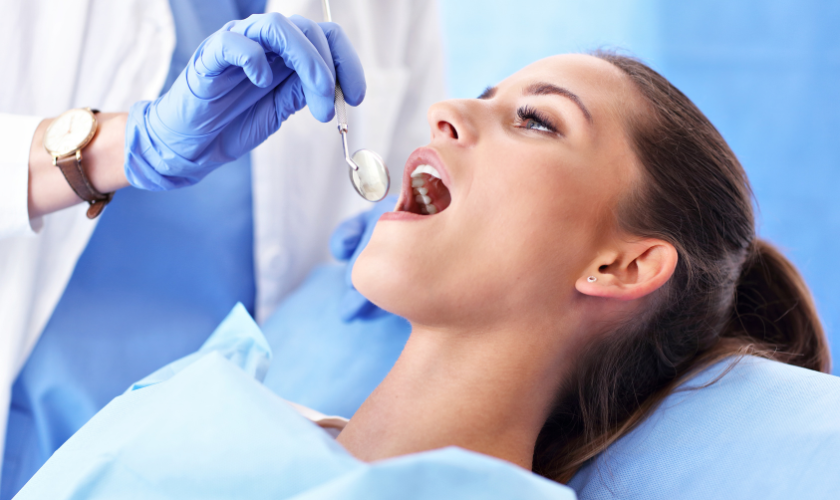
Root canal procedures are common dental treatments aimed at saving a severely infected or decayed tooth. After undergoing a root canal, proper aftercare is essential to ensure a speedy and successful recovery. This blog explores effective tips for root canal aftercare, providing valuable insights into promoting healing and minimizing discomfort.
In the following sections, we will delve into various aspects of root canal aftercare, including immediate post-procedure care, oral hygiene practices, dietary recommendations, lifestyle adjustments, and the importance of follow-up appointments. By implementing these strategies, individuals can facilitate the healing process, alleviate discomfort, and promote optimal oral health outcomes.
With the right approach to aftercare, patients can expect a smooth recovery and the preservation of their treated tooth for years to come.
Immediate Post-Procedure Care
After a root canal procedure, it’s normal to experience some discomfort and pain, which can typically be managed effectively with these strategies:
- Apply ice packs to the affected area to reduce swelling and alleviate pain.
- Take over-the-counter pain relievers as recommended by your dentist or endodontist.
- Avoid chewing on the side of the mouth where the root canal was performed to prevent irritation.
- Follow any specific instructions provided by your dentist regarding post-procedure care and medication.
- Stick to soft and easy-to-chew foods for the first few days after the procedure to avoid putting undue pressure on the treated tooth.
- Attend any follow-up appointments scheduled by your dentist to ensure proper healing and address any concerns promptly.
Oral Hygiene Practices
Maintaining proper oral hygiene is crucial for promoting healing and preventing infection after a root canal procedure. Here are some essential oral hygiene practices to follow:
- Brush your teeth gently, focusing on the treated area, using a soft-bristled toothbrush to avoid causing irritation or discomfort.
- Floss carefully around the treated tooth to remove any food particles or debris, taking care not to dislodge any temporary fillings or crowns.
- Rinse your mouth with a saltwater solution several times a day to help reduce inflammation and disinfect the area.
- Avoid vigorous brushing or flossing around the treated tooth to prevent aggravating the area or causing damage to the restoration.
- Follow any additional instructions provided by your dentist regarding oral hygiene practices specific to your case, such as using antimicrobial mouthwash or avoiding certain foods or beverages.
Dietary Recommendations
After a root canal procedure, it’s essential to make dietary choices that promote healing and minimize discomfort. Here are some dietary recommendations to follow:
- Choose soft and nutritious foods that are easy to chew and swallow, such as yogurt, mashed potatoes, soups, and cooked vegetables.
- Avoid consuming hot or cold drinks, as extreme temperatures can cause sensitivity and discomfort in the treated tooth.
- Limit your intake of alcohol and tobacco products, as they can delay healing, increase the risk of infection, and interfere with the body’s natural healing process.
- Stay hydrated by drinking plenty of water throughout the day, but avoid using a straw to prevent dislodging any temporary fillings or crowns.
Lifestyle Adjustments
Incorporating lifestyle adjustments can aid in a smoother recovery process following a root canal procedure. Here are some tips to consider:
- Allow yourself ample rest and relaxation to facilitate healing. Avoid strenuous physical activities that could put pressure on the treated tooth and surrounding area.
- Manage stress levels effectively, as stress can weaken the immune system and impede the body’s ability to heal. Engage in activities that promote relaxation, such as meditation, deep breathing exercises, or gentle yoga.
- Prioritize your oral health by maintaining regular dental hygiene practices and attending follow-up appointments with your dentist as recommended.
- Be mindful of any signs of complications, such as severe pain, swelling, or infection, and contact your dentist promptly if you experience any concerns.
Follow-Up Appointments and Monitoring
After a root canal procedure, it’s crucial to attend follow-up appointments with your dentist to ensure proper healing and monitor progress. Here’s what to expect during these follow-up visits:
- Schedule regular follow-up appointments with your dentist to assess the healing progress and address any concerns.
- During these visits, your dentist will examine the treated tooth and surrounding tissues to ensure that the root canal was successful and that there are no signs of infection or complications.
- X-rays may be taken to evaluate the tooth’s structure and check for any signs of reinfection.
- Your dentist will provide guidance on oral care practices and may recommend additional treatments or procedures, if necessary, to support healing and maintain oral health.
- Be proactive in addressing any discomfort or concerns you may have during these appointments, as early intervention can help prevent complications and ensure a speedy recovery.
Effective root canal aftercare is essential for a smooth and speedy recovery. By following these tips diligently and attending follow-up appointments, you can ensure optimal healing and minimize the risk of complications. Remember to prioritize rest, maintain good oral hygiene, and make healthy lifestyle choices to support your recovery process.
